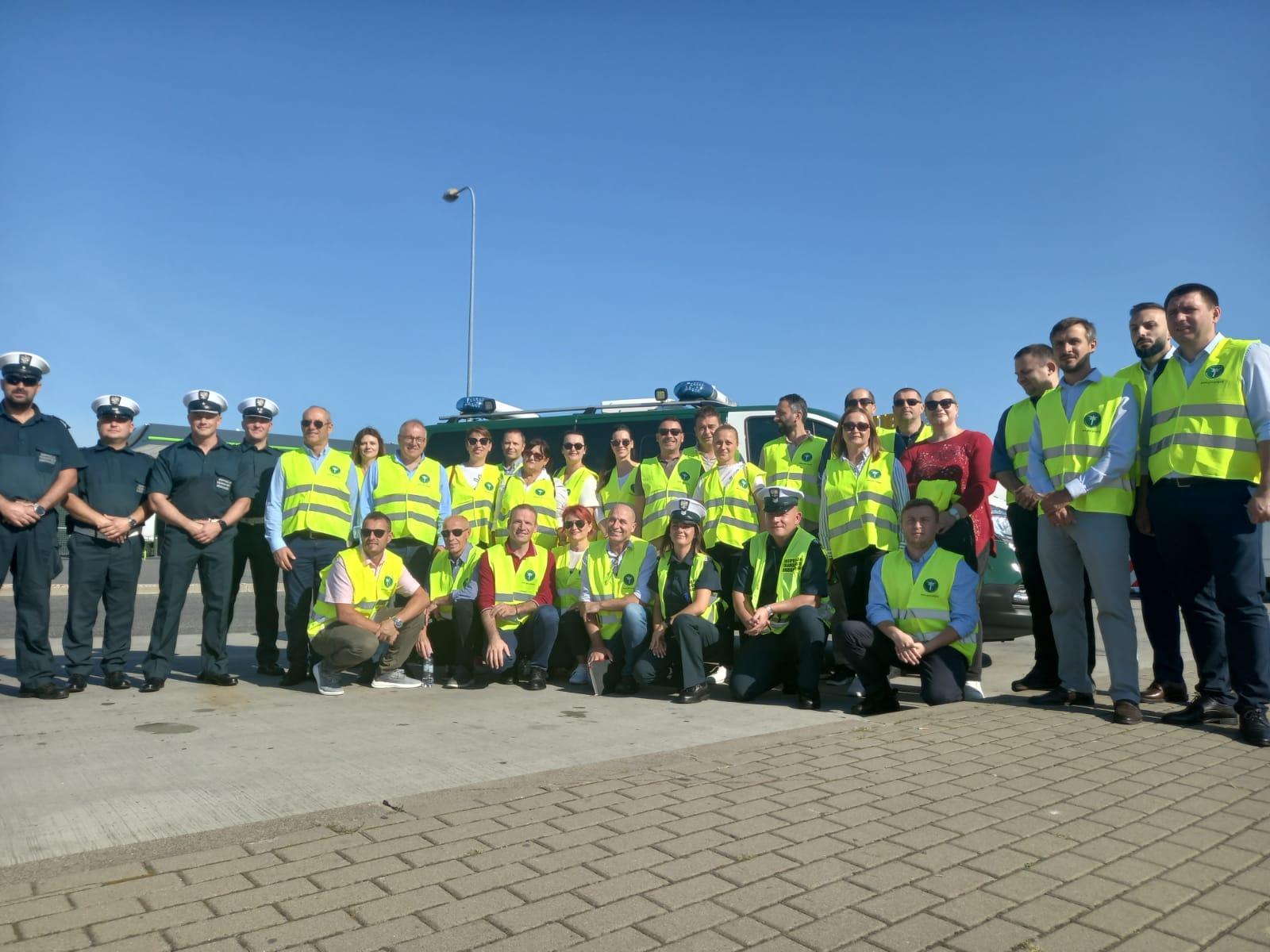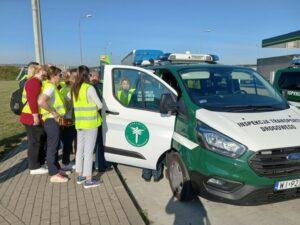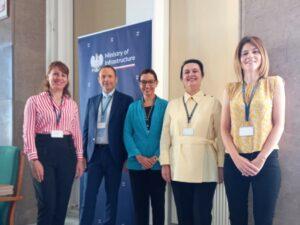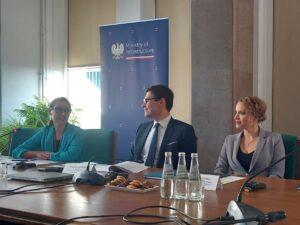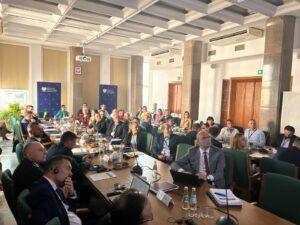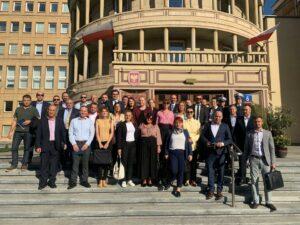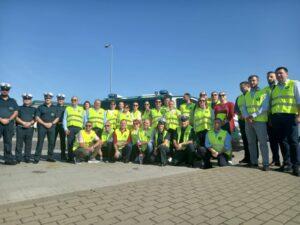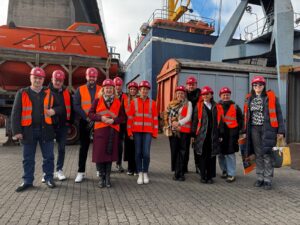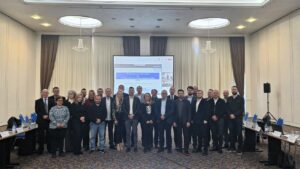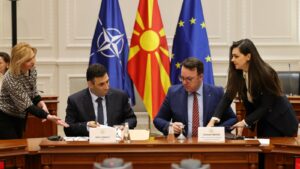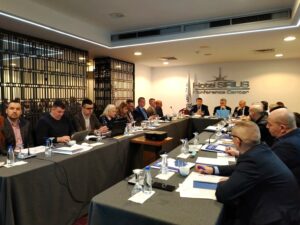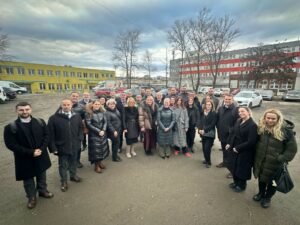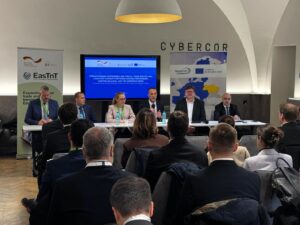WARSAW – Members of the Technical Committees on Road and Road Safety of the TCT Secretariat, representatives of Ministries of Transport and Road Authorities in Western Balkans in charge of road and road safety gathered in Warsaw, Poland, for a two-day study visit focused on knowledge-sharing of enforcement and implementation of European Union’s (EU) road transport legislation.
The event kicked off at the Ministry of Infrastructure, where Mr Marcin Rzeszewicz, Director of the Department of International Cooperation opened the session with welcoming remarks, setting the tone for a day of in-depth discussions.
“The Western Balkans can rely on Polish counterparts in sharing their experience on road safety, intelligent transportation systems (ITS) deployment, alternative fuels, and policy measures for protecting road users. Furthermore, Poland is supporting the extension of European Core Corridors to the Western Balkans, while the EU accession of the Western Balkans, Ukraine, the Republic of Moldova, and Georgia will be part of the Polish agenda during its presidency of the Council of the EU in 2025,” he pointed out.
Addressing the participants, Transport Community Deputy Director, Ms Ljupka Siljanoska, highlighted the importance of knowledge exchange with EU Member States.
“Our journey towards progress and EU membership is interlinked. It is through such events that we find the opportunity to bridge gaps, share knowledge, and boost cooperation. The Western Balkans with their unique challenges and opportunities has much to learn from the EU counterparts,” the Deputy Director underlined.
Ms Joanna Smolińska, Deputy Chief Inspector of Road Transport, pointed out that two years ago, collaboration with the TCT Secretariat was initiated which resulted in two workshops in the Western Balkans on roadside inspections.
Poland has shown remarkable results in reducing the number of fatalities and serious injuries and won the European Transport Safety Council Road Safety Performance Index (ETSC PIN) Award for 2023.
The participants also discussed the ITS implementation and tunnel safety, as well as e-tolling and alternative fuels.
During the second day, the participants got a chance to have hands-on experiences and engage in roadside inspections at MOP Brwinów Południe, offering a practical perspective on electronic toll systems. Following the visit, further discussions concluded the Road and Road Safety Technical Committees.
The study visit aimed at fostering international cooperation and knowledge-sharing, contributing to safer and more efficient road systems in the Western Balkans. Poland’s achievements and expertise in road safety and infrastructure serve as inspiration for the stakeholders in the region.

